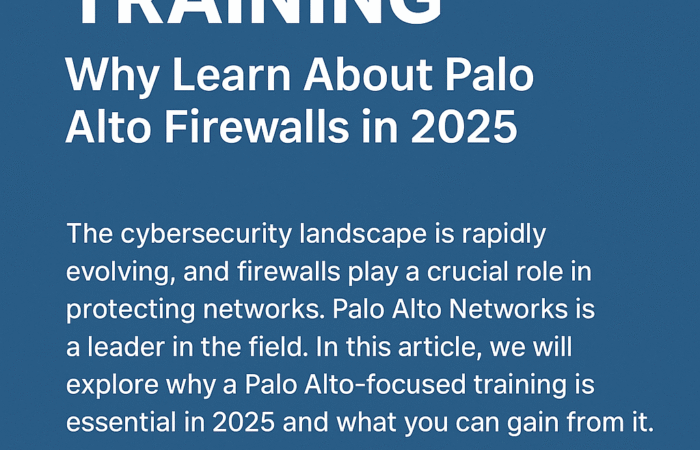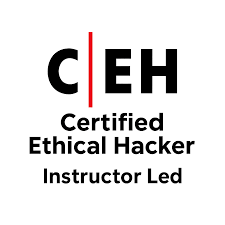Palo Alto Training – Learn Palo Alto Firewalls in 2025

The Certified Ethical Hacker (CEH) exam is a globally recognized certification designed to validate a professional’s skills in identifying vulnerabilities and protecting systems against malicious attacks. While thousands aspire to earn the CEH credential, not everyone succeeds on their first attempt. Many candidates fail not because of a lack of intelligence, but due to avoidable […]

The Certified Ethical Hacker (CEH) exam is a globally recognized certification designed to validate a professional’s skills in identifying vulnerabilities and protecting systems against malicious attacks. While thousands aspire to earn the CEH credential, not everyone succeeds on their first attempt. Many candidates fail not because of a lack of intelligence, but due to avoidable mistakes in preparation and execution.
In this article, we will explore the most common mistakes that lead to failing the CEH exam and provide practical advice to help you steer clear of them.
One of the most frequent reasons candidates fail the CEH exam is underestimating its difficulty. Some assume it’s just about memorizing tools and commands, but the exam is far more comprehensive. It tests both theoretical knowledge and the ability to apply that knowledge in real-world scenarios.
Many candidates fall into the trap of memorizing tools like Nmap, Metasploit, or Wireshark without truly understanding how they work or why they are used. While tools are important, the CEH exam emphasizes why and when a tool is used, not just how.
CEH is not a purely theoretical exam. Without hands-on experience, many candidates struggle to answer scenario-based questions or fail the CEH Practical exam, which requires real-world problem solving.
The CEH exam includes 125 multiple-choice questions to be completed in 4 hours. While this may seem generous, some questions are long and scenario-based, requiring significant reading and analysis.
EC-Council publishes an exam blueprint that outlines domains and the percentage of questions from each area. Ignoring this blueprint often leads to unbalanced preparation and surprises on exam day.
While some candidates seek shortcuts by relying heavily on brain dumps or third-party question banks, this approach often backfires. EC-Council frequently updates its question pool, and relying solely on dumps can result in outdated knowledge and exam failure.
The CEH curriculum is updated regularly to include new trends like cloud security, fileless malware, IoT threats, and MITRE ATT&CK tactics. Candidates who prepare using outdated materials may miss these key areas.
Practice exams are essential for identifying gaps in your knowledge and getting comfortable with the format. Candidates who go into the exam without ever simulating it tend to get overwhelmed or mismanage their time.
With the release of CEH v13, the MITRE ATT&CK framework is now a key part of the curriculum. Many candidates fail to study this properly, missing out on questions related to real-world threat actor behavior and tactics.
Since CEH is an ethical hacking certification, questions around legality, compliance, and ethical behavior are crucial. Candidates often focus so much on hacking techniques that they neglect this aspect.
CEH is not an exam that rewards cramming. Trying to absorb massive amounts of information in the final days can increase anxiety and reduce retention.
While CEH Practical is optional, skipping it can be a missed opportunity. Many employers value hands-on skills more than theory alone, and CEH Practical proves your competence.
The CEH exam is a challenging but rewarding certification that validates your ability to think like a hacker to defend like a professional. Most candidates who fail do so because of common, avoidable mistakes—from ignoring hands-on practice to underestimating the exam’s scope.
By avoiding the pitfalls outlined in this article, you can significantly increase your chances of passing the CEH exam on the first attempt and launching a successful career in ethical hacking.
To explore the latest CEH exam requirements and preparation resources, visit the official EC-Council CEH page here:
https://securevalley-training.net/certified-ethical-hacker-ceh-fr/https://securevalley-training.net/certified-ethical-hacker-ceh-fr/
Get certified with industry-leading cybersecurity certifications from EC-Council, PECB, Palo Alto Networks, and more.

Learn from world-class instructors Collaborate with top professionals Advanced training...

The CEH is the world's leading cybersecurity certification, recognized by...

Onsite training course Led by an instructor Interactive sessions

Asynchronous, self-study environment Video-streaming format Flexible learning schedule
Adding {{itemName}} to cart
Added {{itemName}} to cart

